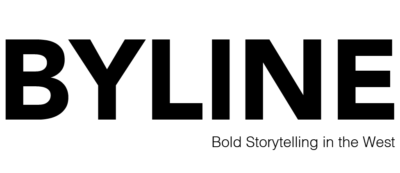Byline 2021
We’re closing in on the two-year mark of a worldwide pandemic that changed our lives in ways we couldn’t predict. But at the same time, we’ve grappled with the injustices of our country’s treatment of minority groups — the LGBTQIA+ community, Black people, Indigenous nations and neurodivergent people, among others. These last two years have forced us to confront problems bigger than just the virus.
Survivors of Native American boarding schools work to preserve the culture those schools intended to erase. Innovative thinkers find ways to expand affordable housing in the midst of an ongoing crisis. Scientists and Indigenous leaders attempt to heal the land we live on by bringing back the plants and animals that belong in these wide-open spaces.
Across Montana, these healers have continued to address problems that have plagued our society.
So we at Byline, the student journalists of the University of Montana and the Western U.S., decided to dive into these stories of healing. Because for every instance of poverty, injustice and sickness, there is a story of a helper, a fixer and a healer.
Not every narrative is so black and white. COVID-19 has polarized the political climate to the point where finding solutions has become even more difficult. Widespread misinformation around the pandemic has pushed out those who once fought for public health and, through a cycle of conspiracies, convinced others not to get a potentially life-saving vaccine.
But those stories are important, too. They point to a desperate need in our nation, state and cities. And we hope that instead of resigned acceptance, they spur a desire to be part of the solution.
There are still so many stories of healing to tell. We urge readers to look at their own lives. Seek out those working to make the world better. Find hope for the future. Amid all the challenges the last two years have posed, let these accounts provide hope or inspire action. We are far from a perfect world, but we each have the power to create change. In a time when apathy has become commonplace (and in some instances, necessary for survival), these narratives rebel.
by Mazana Boerboom & Addie Slanger
__________________________________________________________________
Byline 2019
We’re trying something new this year. Starting from scratch, rewriting the magazine, both literally and figuratively.
Since 1958, a dedicated group of University of Montana students has worked with professional journalists to learn the ins and outs of magazine production, collaborating to produce the Montana Journalism Review, a magazine dedicated to examining the state of the media across Montana and the Western United States. Last year, the School of Journalism decided to put the creation of the magazine in the hands of its scholars (and one or two professors to enter grades). This is the first issue of our new magazine, written and produced entirely by students.
Choosing a new name was much harder than we anticipated. Naming our magazine meant creating a home in which every story we produce for this publication, present and future, will live forever. We wanted something to encapsulate everything we stand for: thoroughly reported stories, intrepid storytelling and thoughtful coverage of Montana and the West. But the name also needed to be timeless and work with future themes.
Byline is loaded with a meaningful history. Bylines, which credit journalists, didn’t appear until the American Civil War. Because articles were written anonymously, some partisan journalists were spreading the “fake news” of the day by reporting inaccurate battlefield casualty numbers. Bylines allowed the public to hold reporters accountable.
The theme of our inaugural issue reflects the title’s history. We decided to report stories that hold those in power and society at large accountable. Everything that appears in this issue concerns social and environmental justice issues in Montana and the West. At its core, journalism is about shedding light on truths that need to be told.
We have a responsibility to society to answer difficult questions and pursue stories that produce positive change. In the following pages, you’ll meet veterans, organic farmers, an immigrant, Native Americans, criminals and victims, and homeless people, whose stories of injustice reflect issues found all over the country.
Thank you for joining us in this inaugural issue of Byline. Here’s to many more.
By Samantha Weber & Suzanne Downing
2021 Staff
Editors-in-Chief
Erika Fredrickson
Keith Graham
Managing Editor
Mazana Boerboom
Deputy Managing Editor
Addie Slanger
Senior Editor
Gentry Hale
Art Director
McKenna Johnson
Copy Chief
Andrea Halland
Deputy Copy Chief
Griffen Smith
Photo Editors
Antonio Ibarra
Sarah Mosquera
Social Media Editor
Emily Martin
Web Editor
Mariah Karis
Web Designers
Emily Martin
MaKayla O’Neil
Writers
Gerald Beeks
Caleb Brinton
Clarise Larson
Michael Martello
Asa Thomas Metcalfe
Sarah Mosquera
Ella Musgrove
Luke Seymour
Griffen Smith
Olivia Swant-Johnson
Print Designers
Mariah Karis
Emily Martin
Ella Musgrove
MaKayla O’Neil
Elle Wilgus
Copy Editors
Zandria DuPuis
Mariah Karis
Clarise Larson
Emily Martin
MaKayla O’Neil
Photographers & Videographers
Kennedy Delap
Joeseph Evans
Aston Kinsella
Collin Kuehn
Michael Martello
Olivia Swant-Johnson
Social Media Producers
Zandria DuPuis
Joseph Evans
Mariah Karis

Copyright © [hfe_current_year] Byline Magazine
